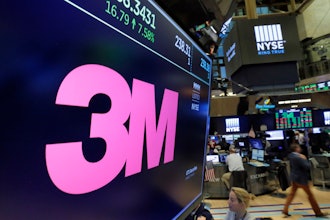ALBANY, New York (AP) New York became the first U.S. state to propose establishing rules for firms involved in receiving, transmitting and storing virtual currency. The proposal by the Department of Financial Services would establish a so-called BitLicense.
Merchants and consumers who use the virtual currency such as Bitcoin solely to buy and sell goods and services wouldn't need a license. However, those buying and selling virtual currency as a business would.
The proposal is intended to establish consumer protections and prevent money laundering. Financial Services Superintendent Ben Lawsky said his agency is trying to do that without stifling innovation.
The proposed rules are scheduled to be published July 23, followed by a 45-day comment period. Lawsky posted a description Thursday on the website Reddit.
Bitcoins and other virtual currencies have been gaining the backing of legitimate investors and mainstream businesses.
Users swap cash for virtual currency using online exchanges, then store it in a wallet program on their computer. The program can transfer payments directly to a merchant who accepts the currency or to private parties anywhere in the world, eliminating transaction fees and the need to provide bank or credit card information.
The currency exchange itBit said it intended to fully comply with regulations and said it applauded New York's "thoughtful and transparent approach ... in examining consumer protection issues surrounding virtual currency and related businesses."
Jim Harper, Washington-based global policy counsel at the Bitcoin Foundation, said some provisions of the regulations would be a heavy burden on bitcoin businesses. For instance, they wouldn't be able to keep their earnings in bitcoin, but have to convert them to regular-currency assets, like Treasury bonds. In addition, the requirement that they collect physical addresses of the parties in all transactions is "generally inconsistent with the way bitcoin works today."






















